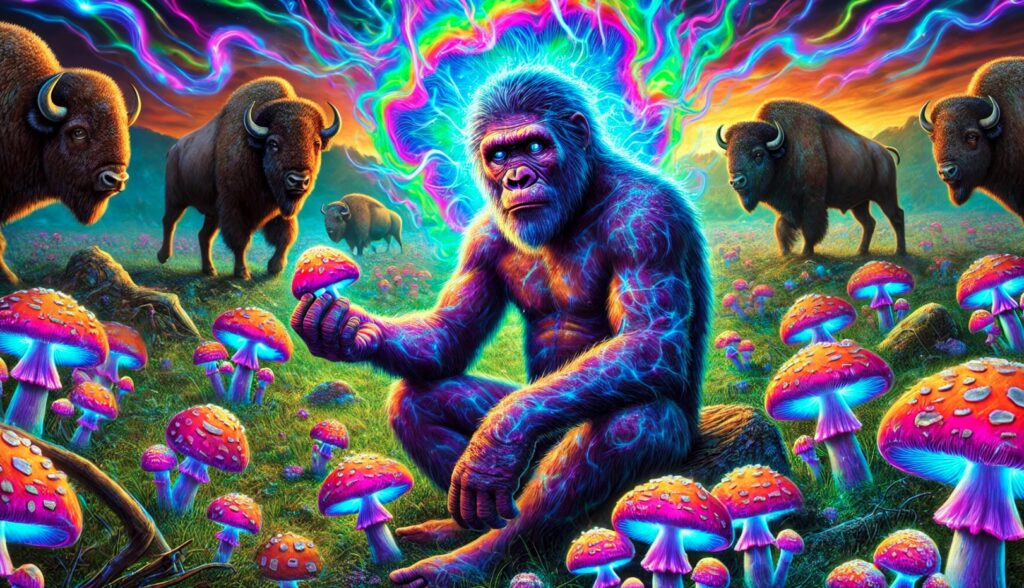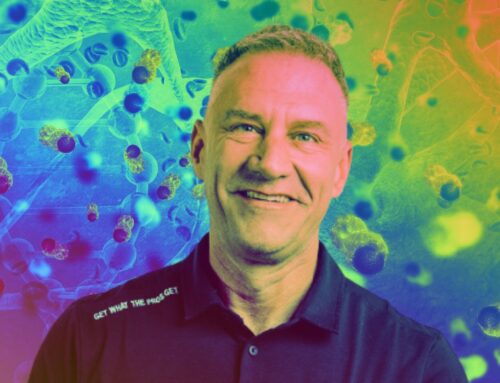If the topic of this article triggers you, I encourage you to approach it with calm and curiosity. Whether we like it or not, the psychedelic conversation is evolving. Scientists, CEOs, psychologists, and thought leaders are opening their minds to what may hold profound healing potential. The War on Drugs, which shaped how many people view these substances, was a powerful campaign. However, ideologies can be examined. History can be reconsidered. Progress often begins with a willingness to question old assumptions. Not that long ago, alcohol was prohibited, and slavery was normal.
For decades, psychedelics were seen as dangerous. The War on Drugs (a trillion-dollar catastrophic failure) pressured countries around the world to adopt harsh punitive measures for the possession and supply of a range of substances, notably excluding alcohol, which is proven to cause the most harm. This approach turned substances such as psychedelics into symbols of rebellion and irresponsibility, halting research and pushing them underground. Today, that story is changing. Science is revealing what many cultures have long proclaimed—psychedelics have the potential to heal, expand consciousness, and challenge the way we see the world.
Yet, as excitement builds around their therapeutic and transformative power, a more complex picture is emerging. The psychedelic renaissance is not just about medical breakthroughs—it’s also about politics, money, and belief systems. Some see it as a revolution in mental health. Others warn of exaggerated claims, ethical risks, and unintended consequences. Importantly, as with alcohol, access to intoxicating substances should always be restricted to adults only.
Psychedelics as Sacred Medicine
For most of human history, psychedelics were not seen as drugs—they were seen as tools. Tools for healing, for insight, and for accessing realms beyond ordinary perception.
In many ancient cultures, those who worked with psychedelics—shamans, mystics, and visionaries—were revered as guardians of the spirit world. They navigated altered states of consciousness and returned with wisdom. Indigenous groups in the Amazon brewed ayahuasca, believing it allowed them to communicate with spirits. The Mazatec people of Mexico used psilocybin mushrooms in sacred ceremonies, seeking healing and guidance.
Even in Western antiquity, psychedelics may have played a crucial role. The Eleusinian Mysteries, a secretive ritual in ancient Greece, involved a psychedelic drink known as kykeon, which some researchers believe contained ergot, a natural source of LSD-like compounds. These rites, attended by figures like Plato and Aristotle, were said to offer initiates profound spiritual revelations.
In India, the Rig Veda, one of the oldest known scriptures, speaks of Soma, a mysterious psychoactive substance believed to grant divine insight. While its exact identity is unknown, scholars speculate it may have been derived from psychedelic plants or mushrooms.

Research also suggests that psychedelics may have played a crucial role in human evolution. The Stoned Ape Theory, proposed by Terence McKenna, suggests that early humans who consumed psychedelic mushrooms developed enhanced hand-eye coordination, greater problem-solving skills, and possibly even the foundations of language and conscious thought. While speculative, this idea highlights how psychedelics may have influenced cognitive development over time.
For thousands of years, these substances were respected. Then, in the 20th century, everything changed.
The Rise and Fall of Psychedelic Science
In the mid-20th century, Western science rediscovered psychedelics. Albert Hofmann synthesized LSD in 1938, calling it “medicine for the soul.” Timothy Leary, a Harvard psychologist, believed LSD could unlock human potential. He encouraged people to “turn on, tune in, drop out,” sparking a cultural revolution—but also a backlash.
Meanwhile, the U.S. government had its own interest. Under MKUltra, the CIA experimented with LSD as a potential mind-control tool. Unwitting subjects were dosed, some suffering severe psychological damage. The ethical violations were staggering. When psychedelics became associated with the counterculture movement, the government responded with prohibition. Research shut down.
For decades, psychedelics remained underground. But now, that’s changing.
The Return of Psychedelic Science
Today, major institutions like Johns Hopkins University, Imperial College London Centre for Psychedelic Research, and MAPS (Multidisciplinary Association for Psychedelic Studies) are leading research into psychedelics’ therapeutic potential.
- Psilocybin has shown promise in treating depression, addiction, and PTSD. In one study, 67% of participants rated it among the five most spiritually significant experiences of their lives, with 11% and 17%, respectively, indicating that it was the single most meaningful experience.
- MDMA-assisted therapy is being studied for trauma healing.
- Psychedelics appear to increase neuroplasticity, helping the brain form new connections.
Michael Pollan’s book How to Change Your Mind brought these discoveries into the mainstream, making the case that psychedelics could revolutionize mental health. Joe Rogan’s podcast has played a major role too, introducing millions of listeners to conversations about DMT, psilocybin, and neuroplasticity. While Rogan is not a scientist, his influence certainly normalized the discussion.
With Robert F. Kennedy Jr.’s appointment to HHS in the U.S., we will undoubtedly see the psychedelic renaissance unfold rapidly. Dr. Shereef Elnahal, a Biden appointee at the VA, is excited about the opportunities to collaborate with Kennedy to continue groundbreaking research on psychedelics and PTSD for veterans. Policy reform will likely follow in the U.S., and the ripple effect will be that worldwide governments, pressured into the War on Drugs by U.S. policy, will likely follow suit.
How Psychedelics Rewire the Brain
One of the most exciting aspects of the psychedelic renaissance is the emerging understanding of how these substances affect the brain. Studies have shown that psychedelics like psilocybin, LSD, and MDMA promote neuroplasticity, effectively allowing the brain to rewire itself in profound ways.
- Neuroplasticity: Psychedelics temporarily increase connectivity between different brain regions, breaking rigid patterns of thought. This is particularly beneficial for people suffering from depression, PTSD, or anxiety, where habitual thought loops reinforce negative emotions.
- Default Mode Network (DMN) Suppression: The DMN is responsible for our sense of self, or ego. Psychedelics have been found to temporarily quiet this network, leading to experiences of ego dissolution, which can provide deep insights, increased empathy, and a greater sense of interconnectedness.
- Trauma Recovery: MDMA, in particular, has shown incredible promise for trauma recovery by reducing the fear response, allowing individuals to process traumatic memories without being overwhelmed.
- Increased Openness and Creativity: Many users report heightened creativity and problem-solving abilities after a psychedelic experience, leading some companies to explore their role in enhancing cognitive performance.
Psychedelics may not just alter perception; they may actually reshape the way we think and experience reality.
This is why my book Start With Values features a section exploring how plant medicines can support greater self-awareness and facilitate value discovery.
The Risks of Psychedelics
While promising, psychedelic therapy is not for everyone. Risks include:
- Psychological distress: Psychedelics can trigger anxiety, paranoia, or psychotic episodes, particularly in those with underlying mental health conditions.
- Hallucinogen persisting perception disorder (HPPD): Some users report lingering visual disturbances long after the experience.
- Lack of proper integration: Some seekers indulge endlessly but never integrate their learnings, leaving them in a cycle of escape rather than growth.
- Legal consequences: Psychedelics remain illegal in many places, leading to potential legal risks.
- Physical risks: While rare, increased heart rate and blood pressure can pose dangers for those with cardiovascular issues.
Psychedelics are powerful tools, but they require responsibility, proper context, and professional guidance when used in therapeutic settings. Campaigning for decriminalization is essential so that research can continue and safe, regulated access can be ensured.
Just as we wouldn’t supply alcohol to a child, psychedelics should be restricted to adults who can make informed decisions about their use. Granting psychedelics the same legal status as alcohol could actually reduce harm by providing a safer alternative to substances that are far more destructive, such as alcohol and other hard drugs. Studies suggest that responsible psychedelic use is associated with lower rates of addiction, violence, and risky behavior compared to alcohol abuse. By regulating psychedelics in a controlled framework, society could minimize the dangers of unregulated use while offering individuals access to their potential therapeutic and consciousness-expanding benefits.
What about Big Pharma and Psychedelics?
The legalization of psychedelics may face significant opposition from big pharmaceutical companies, which currently generate billions in revenue from antidepressants, anti-anxiety medications, and other psychiatric drugs. Traditional treatments often require daily use for years, if not a lifetime, while research suggests that psychedelics—when administered in a therapeutic setting—can facilitate deep healing with only a handful of sessions. This challenges the existing model of long-term pharmaceutical dependence. If psychedelics become widely accepted as viable treatments, they could disrupt the mental health industry, potentially reducing the demand for conventional medications. However, rather than resisting change outright, some pharmaceutical companies may seek to control the market by developing proprietary psychedelic compounds, creating synthetic versions of psilocybin, MDMA, and other psychoactive substances that they can patent and distribute. This shift would allow them to profit from the movement while maintaining control over access and pricing. Whether big pharma fights legalization or capitalizes on it, their influence will undoubtedly shape the future of psychedelic medicine.
Thought Leaders Shaping the Psychedelic Conversation
Some of the most influential minds in science, business, media, and philosophy are openly discussing psychedelics. Their perspectives are reshaping public opinion, moving the conversation beyond counterculture and into the realms of neuroscience, mental health, and personal transformation.
Andrew Huberman, a neuroscientist at Stanford, examines how psychedelics affect the brain. He explains their role in neuroplasticity, emotional processing, and trauma healing. His insights help ground the discussion in science, emphasizing that these substances aren’t magic bullets but potential tools—if used responsibly.
Tim Ferriss, entrepreneur and best-selling author, has personally donated millions to psychedelic research at Johns Hopkins, Imperial College London, and MAPS. He views them as one of the most promising breakthroughs in mental health. Ferriss has shared how psychedelics helped him confront deep fears, unlocking a level of emotional clarity that traditional methods never provided. He believes these compounds could redefine how we treat depression, PTSD, and addiction.
Theo Von, comedian and podcaster, offers a different perspective. He speaks candidly about his experiences, blending humor with raw honesty. He has described psychedelics as a gateway to self-reflection and emotional healing, giving people a new lens through which to examine their past and present. His platform introduces these ideas to a broader audience, normalizing a once-taboo subject.
Lex Fridman, AI researcher and podcast host, takes a philosophical and scientific approach. He’s intrigued by psychedelics’ potential to expand human cognition, enhance creativity, and deepen our understanding of consciousness. Fridman speaks with neuroscientists, therapists, and researchers, exploring both the risks and possibilities. His discussions help bridge the gap between curiosity and rigorous analysis.
Steve Jobs famously credited LSD with shaping his creative vision, calling it “one of the most important things” he ever did. Elon Musk has openly discussed his use of ketamine for depression, challenging outdated stigmas around psychedelic-assisted therapy. Ram Dass, formerly Richard Alpert, experienced a radical transformation through psychedelics, leading him to Eastern spirituality and the writing of Be Here Now, a book that has inspired millions.
Paul Stamets, a mycologist and leading voice in the movement, has dedicated his career to studying the benefits of psilocybin. He believes these fungi can enhance cognition, promote neurogenesis, and even play a role in planetary healing. His “Stamets Stack” protocol—a combination of psilocybin, lion’s mane mushrooms, and niacin—is being explored for its potential to improve brain function.
Together, these voices are dismantling decades of misinformation. They are helping shape a new narrative—one where psychedelics are seen not as dangerous drugs but as powerful tools for mental well-being and personal discovery.
Final Thoughts: Hope, Hype, and Hard Questions
Psychedelics are not just drugs. They are tools for transformation. But they are also powerful and unpredictable.
Timothy Leary saw them as a revolution. Paul Stamets believes they are the future. Michael Pollan helped bring them into mainstream discussion. The question is not whether psychedelics will shape the future—it’s how we integrate them responsibly.
Used wisely, they can change lives. Used recklessly, they can harm. While psychedelics are less destructive than substances like alcohol or amphetamines, there are still risks when used improperly.
The conversation is far from over.
✨ Start With Values
Receive $400 of bonus resources with any order of my new book,Start With Values (Penguin Random House).
Written by : Brad Hook
Brad Hook is a writer, podcaster, speaker and entrepreneur. He helps individuals and teams achieve sustainable high performance through inspiring workshops and a powerful suite of digital tools. Discover his new book, Start With Values (Penguin Random House), — available now!
Stay connected with Brad
BE NOTIFIED ABOUT EVENTS and receive the latest tools and tips first
We will never share your email with others.







